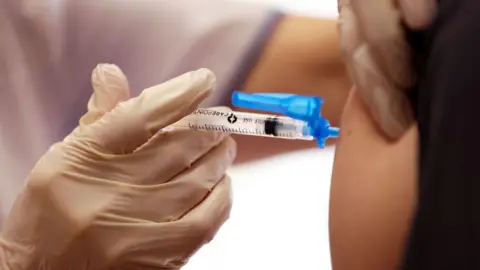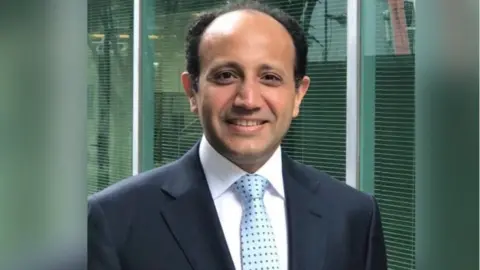Oxford University vaccine study gets funding
Ovarian cancer vaccine study gets funding
Getty Images
A university has secured funding from Cancer Research UK to develop a vaccine for ovarian cancer

A laboratory hoping to develop a vaccine for ovarian cancer has been awarded funding.
Scientists at the University of Oxford are creating OvarianVax, a vaccine which they hope will teach the immune system to recognise and attack the earliest stages of ovarian cancer.
Cancer Research UK is funding the study with up to £600,000 over the next three years.
Director of the university's ovarian cancer cell laboratory Prof Ahmed Ahmed said they still had "a long way to go" but he was "optimistic".
Scientists will create the vaccine in the lab with the aim of training the immune system to recognise the proteins on the surface of ovarian cancer, known as tumour-associated antigens.

They will then move to testing the vaccine in patients with the disease.
"The idea is, if you give the vaccine, these tiny tumours will hopefully either reduce, shrink really significantly, or disappear," said Prof Ahmed.
The next stage would then be to include women with genetic mutations making them more likely to get ovarian cancer, and a wider general population of women without known disease, to see whether the vaccine could prevent the illness.
PA/Cancer Research UK
Prof Ahmed said there was a long way to go but he was "optimistic"
There are around 7,500 new ovarian cancer cases every year in the UK.

There is no screening test and it is often diagnosed late because the symptoms - such as bloating and no appetite - can be vague.
Genetic mutations put some women at a higher risk of developing the disease and, currently, women with certain genetic mutations are advised to have their ovaries removed before the age of 35.
Prof Ahmed said, if effective, the vaccine could eventually remove the need for this.
Despite early optimism, Dr David Crosby, head of prevention and early detection research at Cancer Research UK, said it will be "many years" before any potential vaccine is ready for wider use.
"At this stage, scientists are testing the best components to include in the vaccine, by first trialling it in the lab with samples taken from ovarian cancer patients," he said.











































